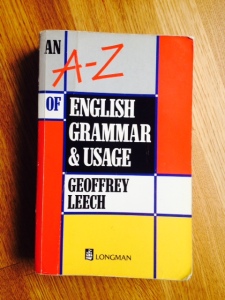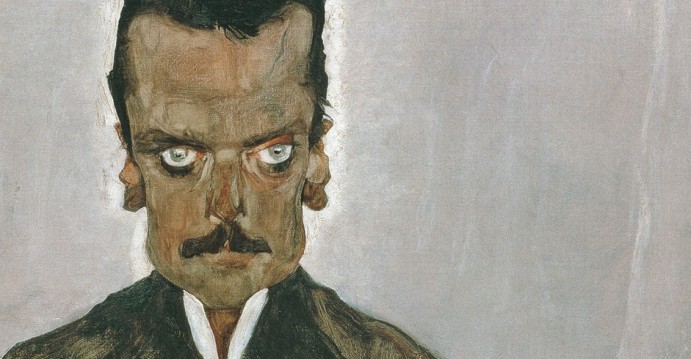One of the less reported perks of the type of work I do is that it puts you in close contact with many types of people and professions which you would normally be inaccessible. Not only does this give you – over many years – a revealing insight into how people think and perceive the modern world, it often offers unparalleled access to the 21st century dynamic between modern organisations and their workforce and what they really think about Apple.
In one of my first jobs, I was dispatched to the head of Vienna’s Sicherheitbüro (serious crimes) to speak to the man who had hunted down Vienna’s most notorious serial killer, Jack Unterwegger in the early nineties. The case had made the lead investigator Ernst Geiger something of a celebrity in law enforcement circles and given the nature of the case and fascinating modus of the perpetrator, Geiger was often called to speak about the investigation at international conferences about serial killers.
Which is where I came in, with my forensic knowledge of the English language and a fat, pristine grammar book untouched and unfathomable hiding in my Technics record bag. And what followed was afternoon after afternoon where Dr Geiger went through the history of the case, detail by detail, him practising his English ready for his presentation, and me feeding him better phrases and making corrections whilst noting down how to foil police detection methods. This also included showing me exhibits from the investigation – which I admit made my buttocks shift in my seat – and some gruesome photographs. These were all part of the talk for hardened cops but a bit of a shock to an innocent English trainer who was still blagging the difference between the present simple and continuous.

Over the years there have been numerous companies and individuals, some quite routine, some challenging, some fascinating and highly intelligent and some I’d rather forget. But occasionally, like Geiger, there was something rather more surreal. The time I spent at the AMA sitting in a room, translating the Austrian butcher’s manual into English, despite no knowledge of German or butchery, remains a highpoint. Or the guys from the Vienna fire investigation department. Or the time I had to check the English of a Eurovision Song Contest participant. The glamour.
To survive such encounters, it pays to be well informed (politics and celebrity gossip), be adept in conversation without alcohol and have a naturally inquisitive mind. Admittedly, one could hide behind the rheumatic and tortuous grammar gap-fill book, or rely on one of those “business English” favourites which are out-of-date as soon as it hits the photocopier. But if like me you place emphasis on the spoken word, then you need to know how to talk about the great philosophical debates of mankind, macro economic policy or the pros and cons of wearing pastel shades in winter.
Yet in many of these encounters it is interesting that true conversation doesn’t really take place. Linguists will often frame causal conversation with the notion of “turn taking” where opinions are expressed and opinions sought. But the reality of business English training is that often it feels like an extended interview (fine by me, I am a nosey bugger) which means if you are incapable of keeping the discourse moving forward with another question or comment, you are, in the jargon of psycho-linguistics, up zee creek! Naturally, you might be thinking this is a failure of methodology. Possibly, but it is a perennial puzzle for me that when the primary aim of a language course is to speak (I know this because participants tell me) that interactions are frequently one-sided.
But occasionally – really, it is less often than you might imagine – a beautiful thing happens; you are asked a question back (emanating from superb conversationalists, who have an intrinsic understanding of the rules of discourse, even in another language). And when it happens the world stops turning for a second, I get a warm feeling in my soul (being paid to chinwag might aid this process, I admit) and I feel strangely empowered
So imagine my amazement this week when not only did I receive a question, but a question which threw me momentarily. Yes, readers, somebody asked me if I was political (am I that transparent? I thought). The reason I say this is that in the more than ten years I have been teaching (chatting) no one has ever asked me so candidly. The second reason is that although the discursive nature of politics is inescapable, especially at the moment as the candidates slog it out in Europe’s most significant autumnal general election in years, it is rare to meet people who will candidly declare their true political leanings (and almost never who they vote for). In a sense, then, the subject is almost off limits unless you have been on the Schnapps.

(A word on the taboo: strictly speaking, aside from too much politics, there are no inviolable subjects in Vienna – apart from the obvious – although if anyone tries to engage with me about Schlager music I have to lock them in a cupboard. But the few that should be avoided when teaching English are: money and salaries, religion (although I am cursed with the temptation to do so), Austria’s role in the Third Reich (unless you are prepared as a Brit or American to defend slavery) and the saintly status bestowed on ex-footballer Hans Krankl, who is untouchable. (Strangely, Nikki Lauda is a more divisive figure.)
So what did I answer? Am I political? I found myself admitting yes, yes I was, pretty much since my Mother forced me to wear a Gramschi t-shirt in the middle ‘80s and not long after a boy in my school (during the mock election of 1987) sensationally claimed that if Labour won, then Soviet tanks would invade Britain. Yet not in an active sense, I conceded, mostly because I feel uncomfortable around the notion of political clubs (actually, all clubs) and their petty rules and untalented but well-meaning members. And so I settled on politically conscious, and yes I was interested in the Austrian election in spite of having no vote (I will be emptying my tea in the Danube Canal this weekend in protest) and yes, if I didn’t have more skeletons in my cupboard than a kleptomaniac medical student, then I might, like, aherm, Arnold Schwarzenegger, seek public office.
But sneaky as I am, I then saw the chance to throw the question back to the group …
… *silence* …
Ps – If like most Viennese I meet you are already bored with the Austrian election campaign and outcome, then don’t worry, I shall only be mentioning it once more. Maybe twice. And for the disenfranchised like me, see you at the Danube on Sunday with a box of tea (but only that cheap Teefix shit).

© RJ Barratt 2013
